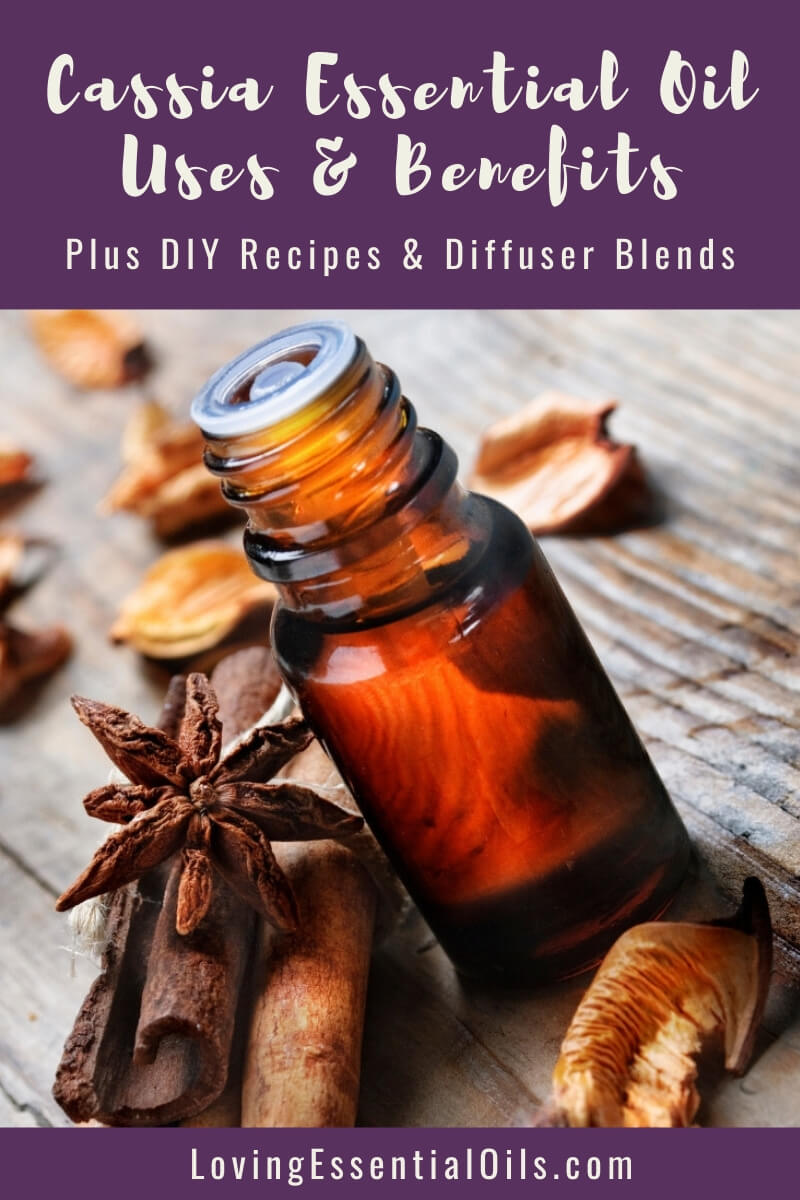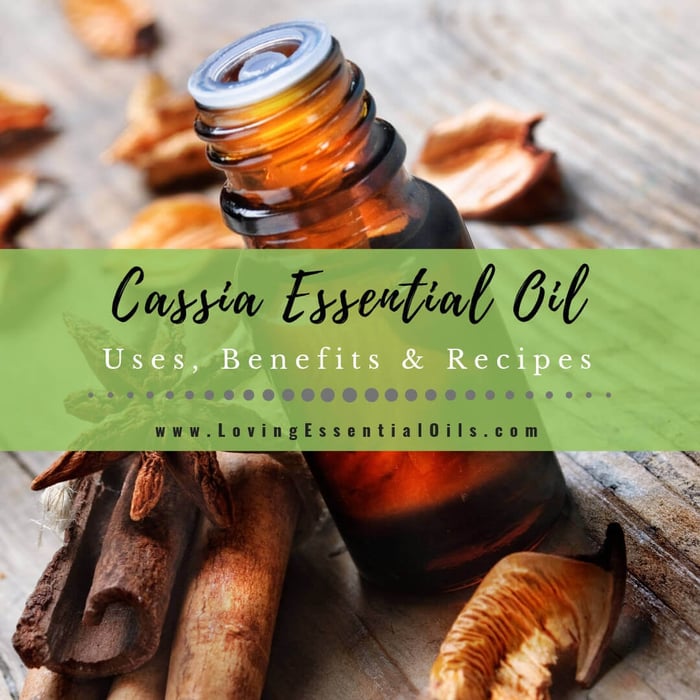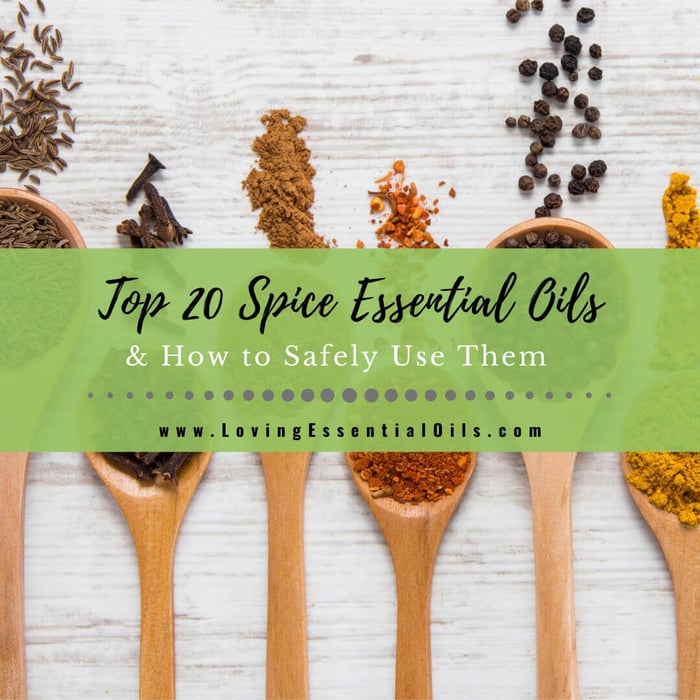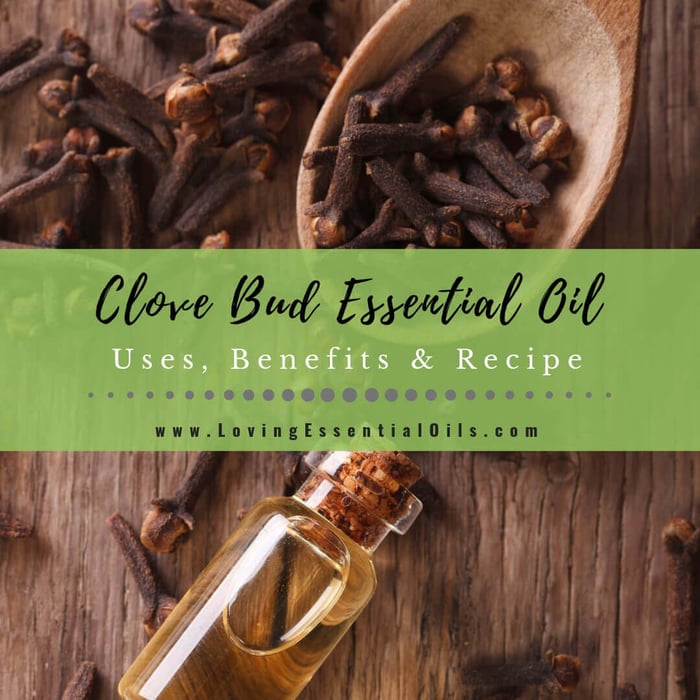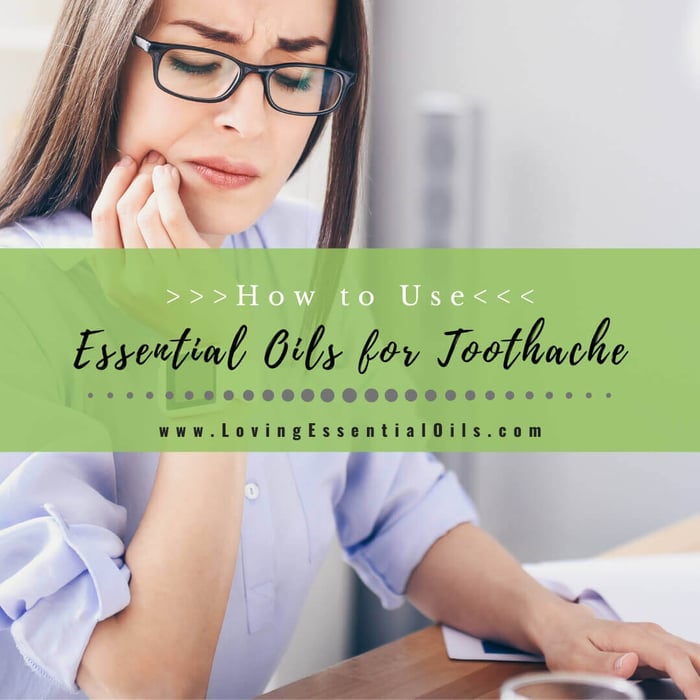Table of Contents
- Cassia Essential Oil Facts
- Cassia Essential Oil Safety
- Cassia Essential Oil Blends Well With
- Cassia Essential Oil Uses and Benefits
- Cassia Essential Oil Recipes
- 10 Cassia Diffuser Blends
- Cassia Essential Oil Substitute
- More About Cassia Oil
- Where to Buy Cassia Essential Oil?
- Final Thoughts on Cassia Essential Oil Uses and Benefits
- General Essential Oil Precautions
- FAQs
Cassia essential oil has a warm and spicy aroma that is perfect for fall and holiday diffuser blends. It is best enjoyed for its aromatic benefits. Cassia Essential Oil Uses include supporting emotional health and wellness. It can create comforting and uplifting feelings.
Cassia is similar to true cinnamon (sometimes called Ceylon cinnamon). This is an oil you will want to use sparingly. It has a robust aroma, and it is a hot oil. It must be well diluted to a maximum of 0.05% for topical application. That works out to about 1 drop of cassia per 4 oz of carrier oil.
I enjoy using this strong and mighty oil in cassia diffuser blends, mainly because it smells incredible when diffused. I share 10 Cassia Diffuser Recipes below to warm and refresh your home and a few other spray blends!
Cassia Essential Oil Facts
Cassia essential oil is extracted from the leaves and twigs of the Cinnamomum cassia plant. It has a warm, spicy aroma with hints of clove and cinnamon fragrance. If you're looking for an essential oil that can help to soothe anxiety, relieve pain, and boost immunity, cassia may be the right choice for you.
The health benefits of using this powerful oil are really surprising, like warming properties. As long as you keep the safety aspects in mind, cassia oil can be a great addition to your oil collection, especially during fall and winter.
- Botanical Name: Cinnamomum cassia
- Botanical Family: Lauraceae
- Aka: Chinese Cinnamon
- Aroma: Warm, spicy, strong, sweet, cinnamon-like
- Note: Middle
- Extraction Method: Steam distilled
- Plant Part Used: Leaves, twigs, bark
- Shelf Life: 3-4 years
- Safety Precautions: Not a kid-friendly oil. Contraindicated during pregnancy and breastfeeding. High risk of skin sensitization. Hot oil, dermal max 0.05%.
Cassia Essential Oil Safety
Don't use undiluted on the skin, it is a "hot oil" and will cause skin irritation. There is a high risk of skin sensitization, Tisserand and Young recommend a dermal maximum of 0.05%, that is only 1 drop for 2 oz of carrier oil.
Do not use on hypersensitive, diseased, or damaged skin. There is a low risk for mucous membrane irritation.
Not a kid-friendly oil. Embryotoxicity; contraindicated during pregnancy and breastfeeding (all routes of use). Possible drug interactions, use caution. (Essential Oil Safety pg. 235).
Avoid old or oxidized oils, they may cause skin sensitization. Store oil in a dark, airtight container. Not phototoxic. Do not ingest.
Main Constituents:
Cinnamaldehyde, cinnamyl acetate
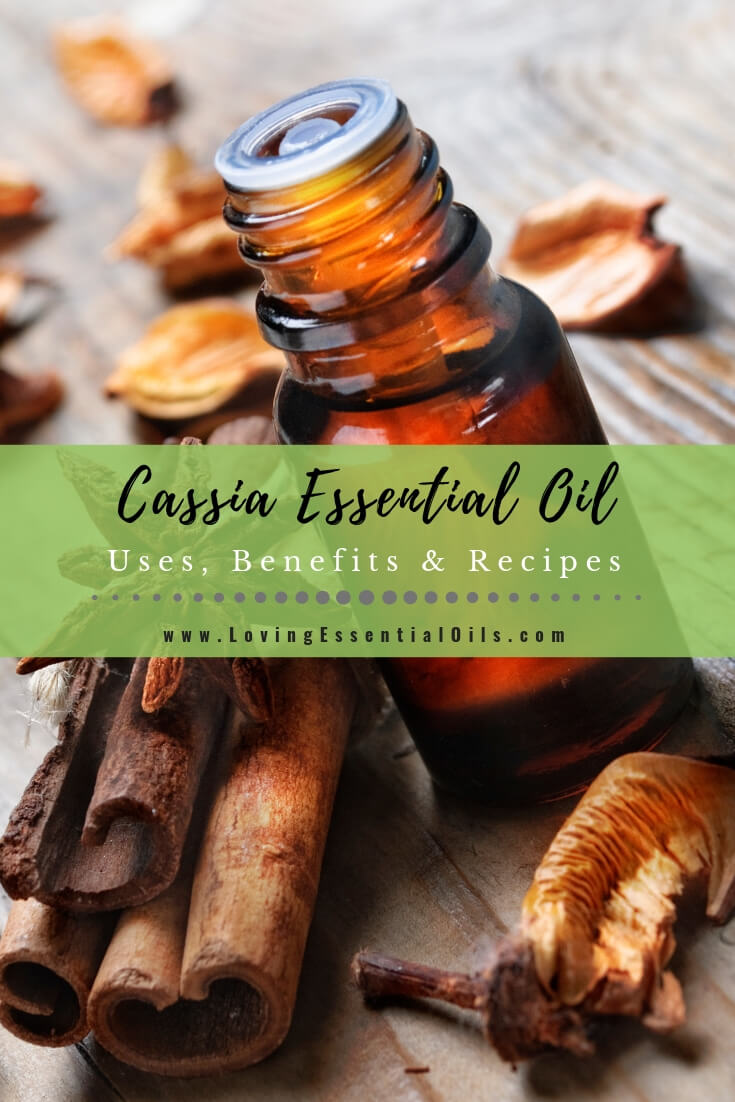
What is Cassia essential oil good for?
Cassia essential oil is popular among those seeking natural remedies for various health concerns. It's derived from the leaves and twigs of Cinnamomum cassia evergreen trees through steam distillation.
As a middle note in blends, it provides comforting and calming effects that help alleviate stressful situations or emotional turmoil.
In topical applications, it has been found effective at reducing joint pain and menstrual cramps symptoms as well as relieving some discomforts associated with menopause. Be sure to dilute well, remember only 0.05% dilution for topical use which is only 1 drop per 2 oz of carrier oil.
Cassia Essential Oil Blends Well With
Cassia essential oil is a warm and spicy oil known for its ability to invigorate and promote feelings of wellbeing. Cassia oil blends well with other spice oils such as Cinnamon, Clove, and Ginger.
Cassia blends well with:
- Cedarwood
- Clove
- Frankincense
- Cinnamon bark
- Orange
- Lemon
- Ginger
- Nutmeg
- Grapefruit
- Bergamot
- Lavender
- Neroli
- Ylang ylang
- White fir
Cassia Essential Oil Uses and Benefits
Cassia essential oil is a versatile, all-natural product that can be used for many purposes. Here are some of the most popular uses of cassia essential oil:
Boosts the Immune System
Help the entire body appropriately run, stay healthy, and avoid seasonal threats. Cassia essential oil effectively counters viral infections and offers protection from colds, coughs, and other seasonal illnesses.
Diffuse cassia oil to cleanse and purify the air in your space. Or, try our Immune Boost Inhaler Blend recipe below.
2. Fights Germs
Cassia oil has been proven to be an antimicrobial, antiviral, and antibacterial agent. It can assist you to naturally clean your home. Make scented baking soda with cassia oil, or try our Toilet Refresh recipe below to keep this germy area fresh and clean.
3. Cold and Flu Season Assist
To promote wellness during cold and flu season, diffuse 2–3 drops of cassia oil, or inhale the oil twice daily from an aromatherapy inhaler.
4. Inexpensive Substitution Oil
Cassia makes a great alternative to cinnamon essential oil, and it usually costs less, which is another positive reason to use it. Use it in oil blends or during meditation instead of cinnamon oil.
5. Assists with Nausea (and Avoid Vomiting)
It induces a refreshing feeling and drives away feelings that bring on nausea and vomiting. Put one drop of cassia oil on a tissue and inhale the scent when nauseous.
6. Uplifts Mood
Uplifts mood and induces warm feelings in the body and mind. Cassia keeps your mind at peace. It can build courage and a sense of self-worth. Place 2 drops on the shower floor just before you get in for a wonderful, warming scent.
7. Promotes Alertness
Cassia essential oil is stimulating and great at boosting energy levels. It stimulates the body and mind, helping you be more active and alert. Simply inhale it directly from the bottle to help you focus and promote alertness.
You can also place one drop of oil on a tissue or diffuser necklace and enjoy the invigorating aroma throughout the day. Read more about the benefits of using diffuser necklaces.
8. Perfect Holiday Oil
Place a few small pinecones from the craft store or outdoors in a decorative bowl. Add several drops of cassia to pinecones for a holiday-scented decoration.
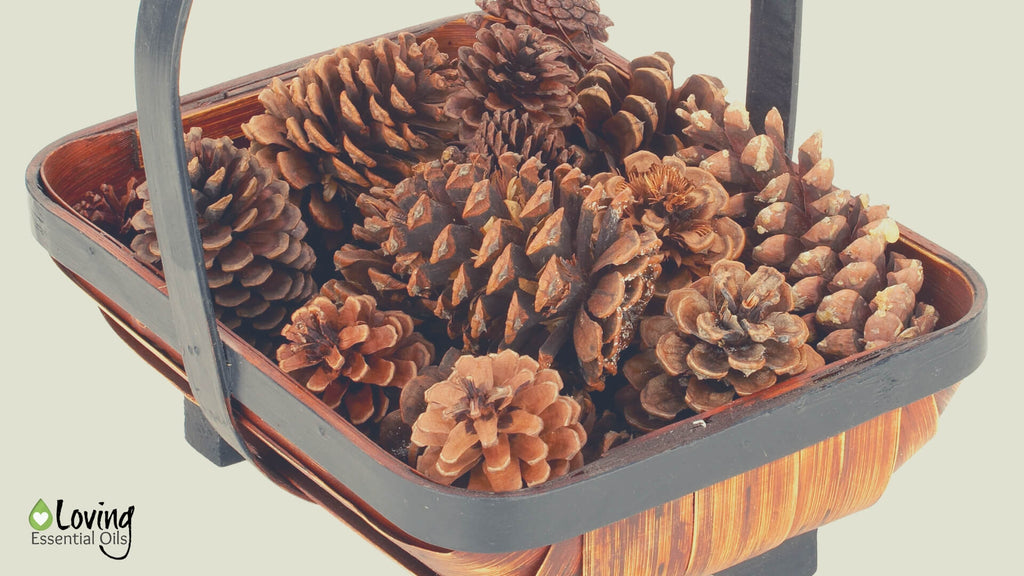
Cassia Essential Oil Recipes
Cassia Essential Oil Recipes will help you find new ways to breathe life into your wellness routine. It's time to get out of the kitchen and start cooking up some good vibes with zesty cassia essential oil!
Orange Spice Room Spray |
This tangerine, sweet orange and cassia essential oil spray blend adds a little spice to that yummy citrus smell.
Directions: Add ingredients into the spray bottle, shake well to blend. To use, shake well and spritz several sprays into the air, at home or in the office. |
Harvest Festival Air Freshener |
Fall brings harvest festivals, times for communities, and groups to get together and bring in food from the garden or farm in order to celebrate harvest time.
Directions: Add ingredients into the spray bottle, shake well to blend. To use, shake well and spritz several sprays into the air. |
Toilet Refresh Spray |
Use this spray to rid stinky odors and germs that cling to this frequented bathroom area.
Directions: Combine ingredients into the bottle, shake and spray into the toilet bowl, and around toilet surfaces to refresh and disinfect this germy area. |
Immune Boost Inhaler |
Directions: Add essential oils to cotton wick and insert it into the inhaler. Read more about using aromatherapy inhalers. |
10 Cassia Diffuser Blends
Cassia can help create an inviting and comfortable atmosphere when used in a diffuser. Whether you want to make a cozy ambiance, detox your space, or relieve an upset stomach, Cassia essential oil can be a great choice.
Add one of the cassia essential oil recipes below to your diffuser with the recommended water for your machine. I like to use a 100-200 ml water tank diffuser, but you can use whatever size you prefer. Adjust the drops as desired.
1. Fall Is in the Air
Enjoy the aroma of the crisp outdoor air during fall while cozy and warm in your home. Blend from our Nutmeg Essential Oil Spotlight. Skip the candles and oil burner, and instead diffuse this fall diffuser blend today!
- 3 drops Silver Fir (Abies alba)
- 2 drops Nutmeg (Myristica fragrans)
- 1 drop Cassia (Cinnamomum cassia)
- 1 drop Clove (Eugenia caryophyllata)
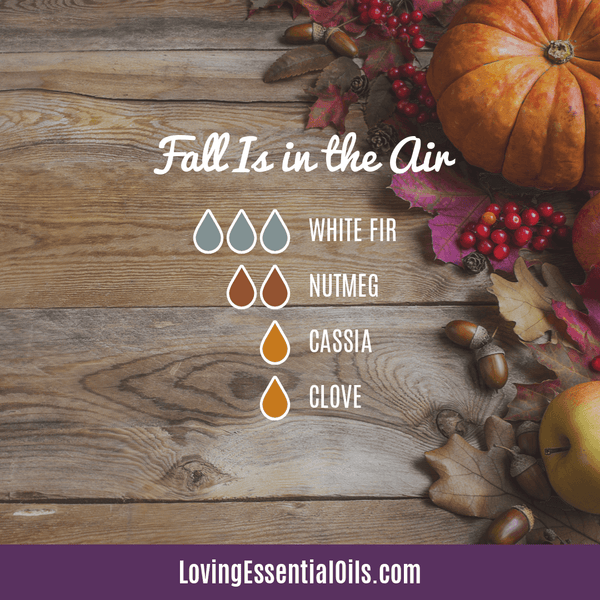
2. Candy Cane
This blend is from our 10 Christmas Diffuser Blends blog post.
- 2 drops Peppermint (Mentha piperita)
- 2 drops Wintergreen (Gaultheria procumbens)
- 1 drop Cassia (Cinnamomum cassia)
- 1 drop Sweet Orange (Citrus sinensis)

3. Oatmeal Cookie
The scent and warmth of fresh cookies in a diffuser blend with cassia and more.
- 3 drops Sweet Orange (Citrus sinensis)
- 2 drops Cassia (Cinnamomum cassia)
- 2 drops Cedarwood (Cedrus deodara)

4. Gingerbread House
- 3 drops Ginger (Zingiber officinale)
- 2 drops Cassia (Cinnamomum cassia)
- 2 drops Clove (Eugenia caryophyllata)

5. Pumpkin Spice Latte
- 4 drops Cardamom (Elettaria cardamomum)
- 2 drops Cassia (Cinnamomum cassia)
- 1 drop Sweet Orange (Citrus sinensis)
- 1 drop Clove (Eugenia caryophyllata)

6. Fall Leaves
- 2 drops Arborvitae (Thuja plicata)
- 2 drops Cardamom (Elettaria cardamomum)
- 2 drops Cassia (Cinnamomum cassia)
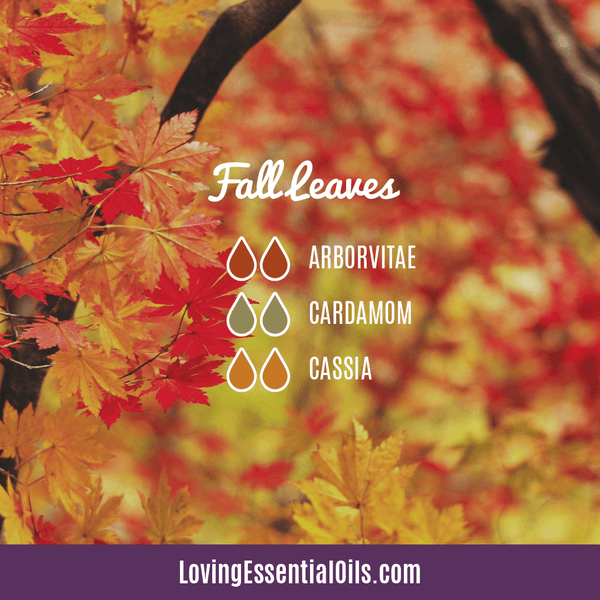
7. Spicy Goodness
- 4 drops Cassia (Cinnamomum cassia)
- 4 drops Grapefruit (Citrus paradisi)
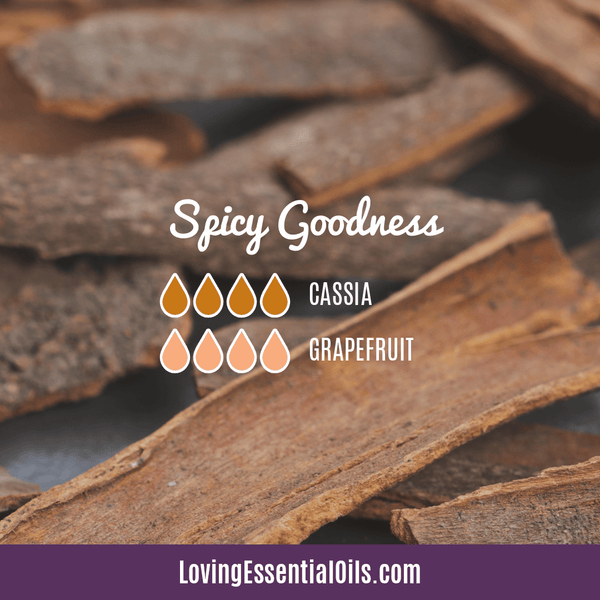
8. Autumn Leaves
- 2 drops Cassia (Cinnamomum cassia)
- 2 drops Patchouli (Pogostemon cablin)
- 2 drops Sweet Orange (Citrus sinensis)
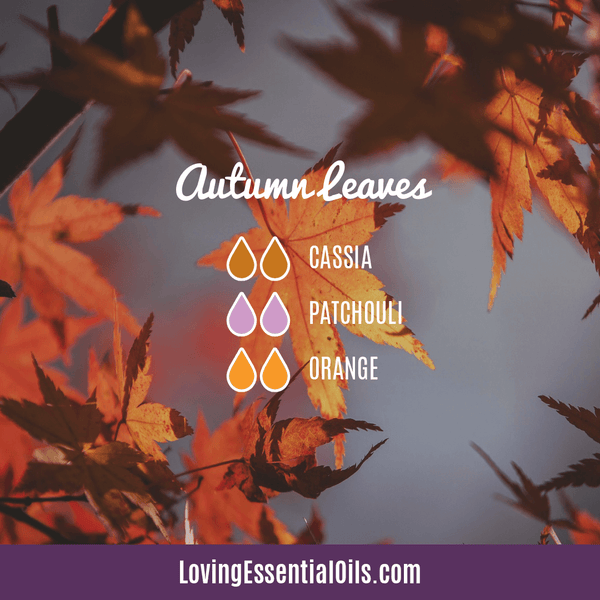
9. Spice of Life
- 2 drops Cassia (Cinnamomum cassia)
- 2 drops Tangerine (Citrus reticulata)
- 1 drop Clove (Eugenia caryophyllata)
- 1 drop Ginger (Zingiber officinale)
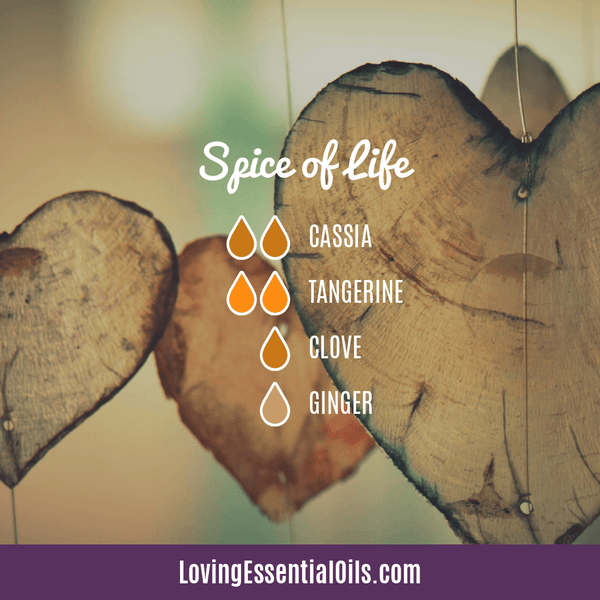
10. Sunny Spice
- 3 drops Bergamot (Citrus bergamia)
- 2 drops Lemon (Citrus limon)
- 2 drops Cassia (Cinnamomum cassia)

Cassia Essential Oil Substitute
A good substitute for cassia essential oil would be cinnamon bark essential oil. Both cassia and cinnamon bark oils come from the same family (Lauraceae) and possess similar aromatic characteristics due to their high content of cinnamaldehyde.
They both emit a warm, spicy, and sweet fragrance, making cinnamon bark oil an excellent alternative to cassia oil in aromatherapy. Both essential oils are strong and potent, so when using either oil it is advisable to dilute it properly and use in moderation to avoid any adverse skin reactions.
More About Cassia Oil
Known for its potent therapeutic properties, cassia is commonly used in aromatherapy to alleviate stress and anxiety, boost mood, improve digestion, and support the immune system. Here are some common FAQs about cassia essential oil:
What does Cassia essential oil smell like?
Cassia essential oil is a divine fusion of spicy and sweet that will transport you to the world of fresh baked cinnamon rolls. If Cinnamon Bark or Cinnamon Leaf oils are too intense for your taste then Cassia could be just what you're looking for! Its gentle floral scent makes it perfect for use in any setting where relaxation and comfort are key - from home fragrancing to personal care products like soaps and perfumes.
Can you ingest Cassia essential oil?
Essential oils are highly potent substances that require careful handling. Inhalation and topical application remain the most effective ways to use them safely without causing harm or adverse reactions. Ingestion should be avoided at all costs unless specifically recommended by a knowledgeable professional who has experience with internal usage of essential oils.
Cassia oil is no exception - it can cause serious side effects such as medication interactions, mucous membrane irritations, sensitization issues and nausea if not used properly. Therefore always consult an expert before attempting any form of ingestion. Remember safety comes first!
Where to Buy Cassia Essential Oil?
Buy only high-quality, 100% pure essential oils when purchasing. If you are looking to buy cassia essential oil, here are some brands we like:
Final Thoughts on Cassia Essential Oil Uses and Benefits
Cassia essential oil offers a variety of benefits that can be enjoyed through aromatic and topical application. When inhaled, cassia oil's warm, spicy scent can help to soothe anxiety and stress.
It can also be used topically, although it should be diluted with a carrier oil such as jojoba or coconut before being applied to the skin. When used topically, cassia essential oil can help to improve circulation and relieve pain.
General Essential Oil Precautions
Never use essential oils undiluted, in eyes or mucous membranes. Do not take internally unless working with a qualified practitioner. Keep out of reach from children.
Use essential oils with extreme caution on children, be sure you have researched the oil and that it is safe for use on kids. Plant Therapy clearly labels their oils "KidSafe" on the bottle if the oil can be used for children ages 2–10.
If applying an essential oil topically (on your skin), you may perform a small patch test to an insensitive part of the body, use 1-2 drops in a teaspoon of carrier oil like jojoba oil, read more here.
If you are pregnant, breastfeeding, epileptic, or under a doctor’s care, consult your physician. For more information on oil safety issues here.
Newbie to Oils? Read More: Essential Oils for Beginners
FAQs
What are cassia diffuser blends good for?
A cassia diffuser blend is a combination of essential oils that includes cassia, which is known for its warm and spicy aroma. It's used in a diffuser to fill a space with a comforting scent that can promote relaxation and uplift mood.
What are the benefits of using cassia essential oil in a diffuser?
Using cassia essential oil in a diffuser can provide several benefits, including creating a soothing atmosphere and reducing stress. Its aromatic properties can also help in boosting mood and providing a sense of warmth and comfort.
How can I create my own cassia diffuser blend?
To create your cassia diffuser blend, mix cassia essential oil with other complementary oils such as orange or clove. Typically, a few drops of each oil are added to a diffuser with water, allowing the blend to disperse throughout the room.
Can cassia diffuser blends help with respiratory issues?
While cassia diffuser blends are primarily used for their aromatic benefits, they may help to clear the airways and support respiratory health due to their warming properties. However, consulting with a healthcare professional for serious respiratory conditions is advisable.
Share on Pinterest
